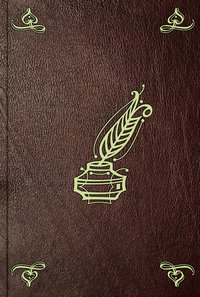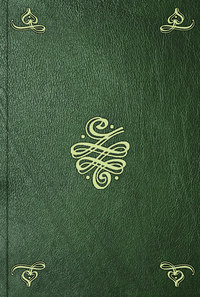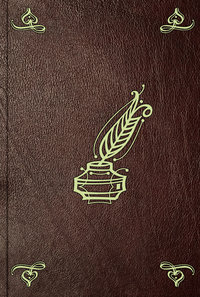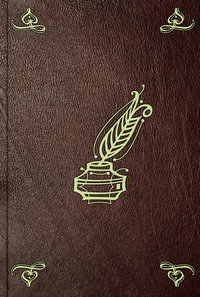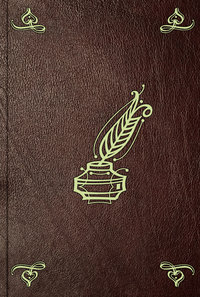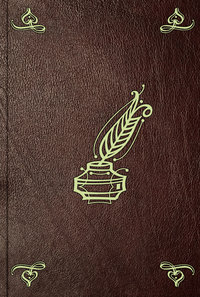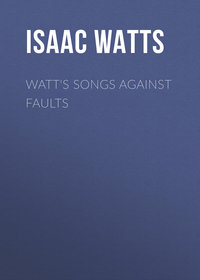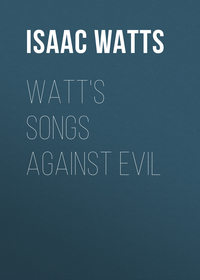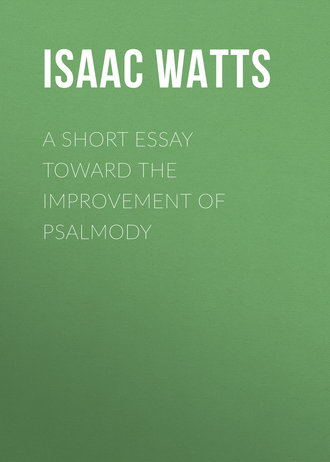 полная версия
полная версияA Short Essay Toward the Improvement of Psalmody
Object. 1. The Directions given for Psalmody in some Parts of the Old Testament, lead us to the Use of those Songs which are inspired, Deut. 31. 16, 19, &c. And the Lord said unto Moses, write ye this Song for you, and teach it the Children of Israel, put it in their Mouths, that this Song may be a Witness for me against the Children of Israel; for when I shall have brought them into the Land which I sware unto their Fathers, which floweth with Milk and Hony, &c. Then they will turn unto other Gods. And in Psal. 81. 1, 2, 3, 4. Where we are required to worship God by Singing, we are not commanded to make a new Psalm, but to make one that is already made, for the words run thus, Sing aloud unto God our Strength, make a joyful Noise to the God of Jacob; Take a Psalm and bring hither the Tymbrel, the pleasant Harp with the Psaltery, blow up the Trumpet in the New Moon, in the Time appointed, on our solemn Feast-Day, for this was a Statute for Israel, and a Law of the God of Jacob.
Ans. 1. I have cited these Texts at large wherein the Objection lies, that an Answer might appear plain in the Text to every Reader. How peculiarly do these Commands refer to the Israelites? The very Words of the Precept confine it to the Jews, to the Men that dwelt in Canaan, to the Worship that is paid with Tymbrels and Trumpets, to the Days of the New Moon, and solemn Jewish Festivals; and if we will insist upon there Scriptures as precise Rules of our present Duty and Worship, the Men that use Musical Instruments in a Christian Church will take the same Liberty of returning to Jewish ordinances, and use then same Text to defend them.
Ans. 2 But if we should grant our selves under the Gospel still obliged by these Commands, yet they do not bind us up intirely to inspired Forms of Singing, since the same sort of Expression is used concerning Prayer; Hos. 14. 2. Take with you Words, and say unto the Lord, take away all Iniquity, and receive us graciously, &c. Now who is there that esteems himself confin'd to use no other Prayer but scriptural Forms? In other Places, where these Duties are injoin'd, we are bid to pray, or to praise, or to sing; and why should we not be as much at Liberty to suit the Words and the Sense to our present Circumstances in Singing as well as Praying, or in praising with Verse as well as praising in Pros?
Object. 2. The examples of Scripture direct us to inspired Matter for Singing: Deut. 31. 21. Mosses wrote this Song the same Day, and taught it the Children of Israel. I Chron. 16. 7. David delivered first this Song, to thank the Lord, into the Hand of Asaph and his Brethren. Now in his dying Words, the sweet Psalmist of Israel tells us, 2 Sam. 23. 1, 2. The Spirit of the Lord spake by me, and his Word was in my Tongue. And in the Days of Hezekiah, which was some Ages after David: 2 Chron. 29. 27, 28, 29, 30. Hezekia commanded to offer the Burnt-Offering upon the Altar; and when the Burnt-Offering began, the Song of the Lord began also with the Trumpets and with the Instruments ordained by David King of Israel, &c.. Moreover Hezekiah the King and the Princes commanded the Levites to sing Praise to the Lord, with the Words of David and of Asaph the Seer.
Answ. There are nothing but Examples of Jewish, and very ceremonious Worship; Nor do they effectually prove, that the Jews themselves were forbid upon all Occasions whatsoever to use more private Composures in their Synagogues, tho in the Temple 'tis probable that for the most part they sung inspired Psalms. But it must be remembred, that these Psalms are all suited to their Dispensation, and yet without doubt they chose such out of them from time to time as best fitted their present Case; and so will we Christians take as many of the Psalms of David and other Scripture-Songs, as are suited to our Dispensation and our Circumstances; but there will be but very few in Comparison of what the antient Levites might use, especially if we must sing the very words of David and Asaph the Seer without Omission or Paraphrase.
Object. 3. We cannot pretend to make better spiritual Songs than the Spirit of God himself has made, therefore if we should neglect these, and sing humane Composures, we should incur the Censure of the prophet Malachy, Chap. 1. v. 13, 14. Ye brought that which was torn, and the Lame, and the Sick, thus ye brought an Offering, saith the Lord, should I accept this of your Hands?
Ans. 1. Can we pretend to make better Prayers than the Spirit of God has made and scatter'd up and down thro' all the Old and New Testament? Can we compose better Sermons than Moses or Solomon? Better than our Saviour and his Apostles preach'd, and the Spirit of God hath recorded? Why then should not we use Scripture Forms of praying and preaching, as well as of Singing? And tho we may hope for the ordinary Assistance of the Spirit in our Prayers and Sermons, yet how can we expect that these shall be as good as those which were compos'd by his extraordinary Inspiration?
Ans. 2. Divine Wisdom accommodates its Inspirations, its Gifts, its Revelations, and its Writings, to the particular Cases and Seasons in which he finds a Saint or a Church. Now tho we cannot pretend to make a better Prayer than that of Ezra or Daniel, or our Lord, for the Day and Design for which they were prepared; yet a Song, a Sermon, or a Prayer that expresses my Wants, my Duties or my Mercies, tho it be compos'd by a humane Gift, is much better for me than to tie myself to any inspired Words in any part of Worship which do not reach my Case; and consequently can never be proper to assist the Exercise of my Graces or raise my Devotion.
Ans. 3. I believe that Phrases and Sentences used by inspired Writers are very proper to express our Thoughts in Prayer, Preaching or Praise; and God has frequently given Witness in the Hearts of Christians how much he approves the Language of Scripture; but 'tis always with a Proviso that those Phrases be clear, and expressive of our present Sense, and proper to our present Purpose: Yet we are not to dress up our Prayers, Sermons or Songs in the Language of Judaism when we design to express the Doctrines of the Gospel: This would but darken Divine Counsel by Words without Knowledge; it would amuse and confound the more ignorant Worshipers, 'twould disgust the more Considerate, and give neither the one nor the other Light or Comfort: And I think it may be as proper in our Churches to read a Sermon of Moses or Isaiah instead of preaching the Gospel, as to sing a Psalm of David whose Expressions chiefly refer to David the Shepherd, the King, the Fugitive, the Captain, the Musician and the Jew. In short the Prayers, Sermons and Songs in Scripture are rather Patterns by which we should frame our Worship and adjust it to our present Case, than Forms of Worship to which we should precisely and unchangeably confine our selves. And as Sermons which are conformable to the Holy Scripture in a large Sense may be called the Word of God and the Word of Christ, and are usally and justly so called if they are agreeable to the Scripture and drawn from thence; so Hymns of Humane Composure according to the Spirit and Doctrines of the Gospel may be as well termed the Word of Christ, which is the proper Matter for Christian Psalmody. Col. 3. 16. whereas in the strictest and most limited Sense of the Word nothing deserves that Title but the Hebrew and Greek Originals.
Object. 4. In the New Testament there are Promises of Divine Assistance to Ministers and private Christians in preaching the Gospel and in Prayer; But we have no Promise of the Spirit of God to help us to compose Psalms or Hymns for our private Use or for the Use of the Churches; and how can we practise in the Worship of God what we have no Promise of the holy Spirit to encourage and assist us in?
Ans. 1. There are many general Promises of the Presence of Christ with his Ministers, and the Supply of his Spirit in the Discharge of all their Duties for the Edification of the Church: Now there are several Performances which are necessary for the Churches Edification, to which there is no peculiar Promise made of the Assistance of the Spirit in express Words: Such are, Translating the Bible into our Mother-Tongue, Composing our Sermons or at least the Substance and Scheme of them before preaching, Writing pious and useful Treatises upon divine Subjects, and Diligent Reading and study of Books so written; nor is there any more express Encouragement to expect the Presence of the Spirit in turning the Psalms of David into Rhime and Metre, than in composing new Spiritual Songs: And yet Ministers that are fitted for such Performances may pray and hope for Divine Assistance in them all, and trust in the general Promises for Help in particular Services.
Ans. 2. There is no need of these Gifts of Criticism or of Poesy for all Christians nor all Ministers, tho it seems necessary that some should be furnish'd with them. A few Persons in an Age or a Nation may translate the Scriptures into the National Language, and may compose a sufficient Number of Hymns to answer the chief Designs and Wants of the Church for that Day for publick Worship. Where there happen Occasions very particular, the Ministers of the Gospel are not or should not be so utterly destitute of common Ingenuity, as to be unable to compose or at least to collect a few tolerable Verses proper for such a Season.
Object. 5. We find no Instances in Scripture of humane Composures sung by the People of God; and 'tis not good to practise such pieces of Worship without a Precedent.
Ans. Whensoever there was just Occasion for an Hymn according to some new and special Providence, we almost every where find a new Song recorded in Scripture, and we call it inspired, nor do I know any just Reason to suspect or doubt of the Inspiration; but if there had been any one which was not the Effect of an extraordinary Gift but only compos'd by a good Man, we should be ready to take it for inspired because mention'd in Scripture; as we do too many Expressions of the Saints in that divine History, and make every thing that a good Man saith Heavenly and Divine: However if there can be no Pretence made to such an Example in Scripture, yet so much Reason, Argument and Incouragement as hath been already drawn from Scripture sufficiently justifies this Practice, since we perform many Circumstantials of Worship under the Influence of a general Command without express and special Examples.
Object. 6. We ought to sing nothing to God but what is given us for this very End that it may be sung, lest we indulge Will-worship and the Inventions of Men.
Ans. 1. To convert the Verses of David into English Lines, to confine them to an exact Number of Syllables, and to make Melody in particular Tunes, may as well be called the Inventions of Men and Will-Worship: But these Inventions are absolutely necessary for the Performance of Divine Commands, and for the Assistance of a whole Congregation to sing; with any tolerable Convenience, Order or Decency, as the Reverend Mr. Boyse has well proved.
Ans. 2. Those that refuse to sing Forms of humane Composure tho the Sense be never so divine, generally allow it lawful to take any Parts of Scripture and alter and transpose the Words into a Form fit for Singing; But to take a mere Parable or Story out of the Bible, and put Some Rhimes onto the End of every Line of it, without giving it a new and pathetic Turn, is but a dull way of making spiritual Songs, and without a precedent too. David did not deal so with Genesis and Exodus, tho he loved the Words of the Law as well as we pretend to value the Words of the Gospels and Epistles. The most part of the New Testament as it stands in our Bible was never given us for Psalms, Hymns and spiritual Songs; but for divine Instruction and Materials for this and other Duties, that so we might borrow the Doctrines and Discoveries of the New Testament, and compose Sermons and Songs out of them: But if we take Chapters and Verses promiscuously out of the New Testament, and make them jingle and rhime, and so sing them, we are guilty of singing what God never commanded to be sung, as much as if we compos'd spiritual Songs by humane Art agreeable to the Sense of Scripture and the Christian Faith.
If the Addition of humane Testimony concerning the Practice of Churches in former or later Ages might have any influence to establish the Consciences of those who are doubtful in this Matter, I might acquaint them that the Churches of Germany and the Eastland Churches, use many Divine Hymns which are compos'd on several Subjects of the Christian Religion, without any Pretence to extraordinary Gifts. The Church of England approves this Practice, as appears in those Spiritual Songs at the End of the old Translation of the Psalm-Book, and some Churches among the Dissenters. The Christians of the first Ages were wont to meet together on a Day appointed before it was Light, and to speak a Song to Christ as to God. Thus Pliny the Roman testifies in a Letter to Trajan the Emperour in the Beginning of the second Century. Tertullian, who flourish'd about the Beginning of the Third Century, relating the Manner of Administration of the Lord's Supper, asserts That after they had eat and drank what was sufficient for those that must worship God by Night, &c. Every one was urged to sing unto God publickly either out of the holy Scriptures, or according to their own Genius and Ability, Apol. C. 39. Origen, who flourish'd in the Middle of the Third Century, speaks of _singing Hymns or Praise to the Father in or by Christ in good Rhime, Tune, Metre and Harmony. Origen de Orat. Sect. 6. Eusebius, B. 7. C. 19. quotes Dionisius writing against Nepos thus, _Altho I heartily love Nepos for his Faith, his Study of Knowledge and the holy Scriptures, as well as for various Psalms and Hymns composed by him, which are used to this Day by some Brethren, yet, &c. In the Acts of the Council of Antioch mention'd by Eusebius, B.7. C.30. It was one of the Accusations of Paulus Samosatenus the Heretick Bishop of Antioch, that he abolished those Psalms which were wont to be sung to the Honour of the Lord Jesus Christ as novel and compos'd by Modern Authors, and that he appointed Women on Easter Day in the Middle of the Church to sing Psalms in his Praise. And in the Fragment of an anonymous Author extant in Eusebius we find the Heresy of Artemon, who denied the Divinity of Christ, confuted not only by the Scriptures and the Writings of the precedent Fathers, but also by the Psalms and Hymns of the Brethren which were formerly compos'd by them, wherein they sung Praises to the WORD of God, declaring Christ to be God. Such a private composed Hymn was that which Clemens Alexandrinus mentions as one commonly known among the Christians in his Days, beginning Kaire Phos, or Hail Light. Spanheim in his sixth Chapter of the fourth Century of his Christian History speaks thus, Besides Hymns and Songs, and private Psalms, of which there was a great Number in their solemn Assemblies, the Psalm Book of David was brought into the Western Church in this Age in the Time of Damasus and Ambrose; but in the Eastern Church the singing of David 's Psalter by Antiphona's or Responses was brought in by Flavianus Antiochenus. The Use of Psalms compos'd by private Persons seems not to be forbidden in the Church till the Council of Laodicea in the fourth Century.
CONCLUSIONTHUS have I drawn together my Thoughts upon this Subject at the Request of several Ministers and private Christians who practise Psalmody in this Method themselves, and sing the Songs of the Lamb as well as the Psalms of David in their publick and private Worship, and especially at the Celebration of the Lord's Supper. I had design'd and almost prepar'd a larger Discourse, wherein the Duty of Singing and the Manner of Performance would have been consider'd. But this Essay has already swell'd beyond the Bulk propos'd: There are many that would rejoice to see Evangelic Songs more universally encouraged to the Honour of their Lord Jesus, and to the Joy and Consolation of their Fellow-saints. If the Spirit of God shall make any of these Arguments I have used successful to attain this glorious End, I shall take pleasure in the Release of their Souls from that part of Judaism which they have so long indulged. I hope the Difficulties that appear'd frightful and discouraging will be lost, and vanish by a diligent and fair Perusal of what is written; yet those that pay a sacred Reverence to the Inspired Writings, may still find it hard to yield to the Conviction; Scruples and Reliques of an old Opinion will perhaps hang about their Consciences still: A Fear and Jealousy of admitting any Forms humane Composure in the Worship of Singing will scarce permit their Lips to practise that to which their Understandings have given their Assent. I would intreat such to give this Discourse a thoughtful Review; and tho they may not judge every Argument conclusive, nor every Objection sufficiently remov'd, yet if there be but one unanswerable Reason it ought to be attended to; and the whole put together may give such Light and Satisfaction as may incourage the Practice of this Duty. 'Tis very easy to make Cavils and Replies to the strongest Reasonings; but let us have a Care lest we rob our Souls and the Churches of those Divine Comforts of evangelic Psalmody, by a Fondness of our old and preconceived Opinions. He that believeth may eat all Things, and should not be forbidden: He may partake of Flesh and drink Wine; he may tast of the various Pleasure of the Gospel, and sing the New Song: Another who is weak eateth Herbs, and satisfies himself with ancient Melody. Let not him that eateth despise him that eateth not, and let not him which eateth not judge him which eateth, for God hath received him, Rom. 14. 2.
If the Hymns and spiritual Songs which are here presented to the World are so unhappy as to discourage the Design of this Essay, I will censure and reprove them my self: If they are condemned as being unsuitable to the Capacity or Experience of plain Christians, I will easily confess a Variety of Faults in them; 'twas hard to restrain my Verse always within the Bounds of my Design; 'Twas hard to sink every Line to the Level of a whole Congregation, and yet to keep it above Contempt. However among so great a Number of Songs I hope there will be some found that speak the very Language, and Desires and Sense of the meanest Souls, and will be an Assistance to their Joy and Worship. The Blemishes of the rest may serve to awaken some more pious and judicious Fancy to a more successful Attempt; and whoever shall have the Honour of such a Performance, I promise my self a large Share in the Pleasure. But we must despair of hearing the New Song of the Lamb in its Perfection and Glory, till Babylon the Great is fallen, and the Kingdoms of this World are become the Kingdoms of the Lord and his Christ, till the New Heavens and the New Earth appear, till all the former things are passed away, and all things are made New.


